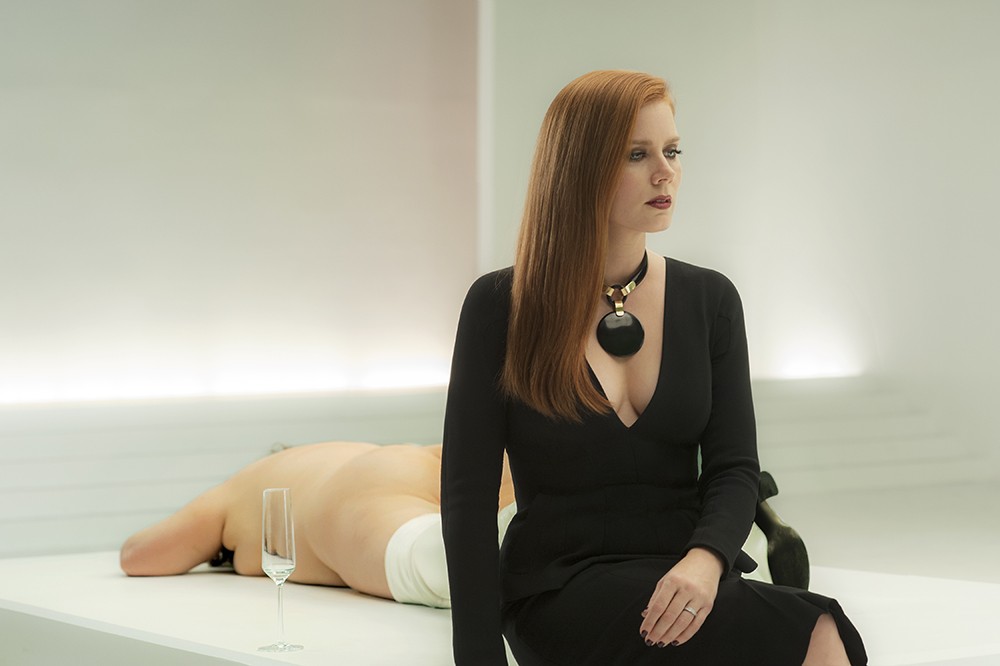Nocturnal Animals
Nocturnal Animals, 2016, 4 stars
Written revenge
Literature is weapon of choice in Nocturnal Animals
From The Orlando Weekly, November 23, 2016
We all regret something, but those regrets are often ethereal and rarely require an emotional reckoning or physical confrontation. Not so for Susan, whose past returns to haunt her – in book form, no less – in Nocturnal Animals, the mesmerizing psychological thriller by writer-director Tom Ford.
Susan (Amy Adams) is a 40-something art-gallery owner stuck in a loveless marriage and an empty life. Not even her successful career can bring her happiness or allow her to “enjoy the absurdity of our world,” as a friend advises. Into this state of vulnerability comes a novel, and not just any novel. Written by her ex-husband, Edward (Jake Gyllenhaal) – whom she hasn’t seen in almost two decades – dedicated to her and titled Nocturnal Animals (Edward’s nickname for her), the book is a brutal account of a family torn apart by violence and revenge. Though she’s troubled by the novel, she can’t put it down – just as we, seeing it through her eyes, can’t look away. We watch it play out on screen as she reads it, through a story-within-a-story allegorical structure, with flashbacks of her real life heightening the maze-like composition.
Because the book’s story is intercut and personally linked with Susan’s life, we’re often left in the dark as to the true nature of the characters, and of the film itself. Is it a gritty crime drama with a unique framing device? Is it story of lost love and missed chances, with a story stuck in the middle? Or is it a mind-bending commentary on interpersonal relationships within a world of pretention and betrayal? The answer, of course, is that it’s whatever you want it to be, which is what you’d expect from this sort of stylistic, deconstructionist device.
Just the second feature from writer-director Tom Ford, after A Single Man in 2009, Nocturnal Animals is based on Tony and Susan, a novel by Austin Wright. Though the twisty writing, cerebral editing and stylish cinematography give the film a cinematic punch, the performances give it lasting power. Adams is engaging as always, but she infuses her character with a bleakness we rarely see from her. Gyllenhaal is even better in the dual roles of Edward and Tony, the main character in Edward’s novel. Aaron Taylor-Johnson and Laura Linney deserve mention too, but Michael Shannon bests them all, practically demanding another supporting-actor Oscar nomination with his razor-sharp portrayal of a hard-nosed Texas cop.
Ford sacrifices some substance for style, and Edward’s novel is given more screen time than it probably deserves. Indeed, that part of the film can seem a tad tedious, especially since we’re longing to get back to Susan’s life, if only so we can figure out how the two stories fit together. Still, thanks to perfect pacing, our attention never wanders as the film builds to a haunting and unexpected, if not wholly satisfying, ending.
One characteristic common to real nocturnal animals is a heightened appreciation of sound. Some nighttime creatures can even hear ultrasonic frequencies. Ford may not have that ability, but his Nocturnal Animals clearly proves he’s operating on a cinematic frequency incomprehensible to most of his fellow directors.
© 2016 Orlando Weekly / MeierMovies, LLC
